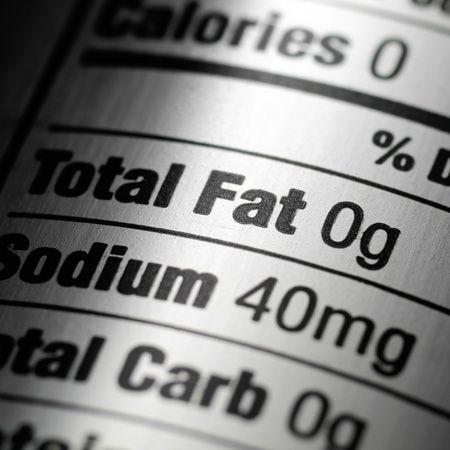Snack on too many Brazil nuts and you can over-dose on selenium. Eat too many tins of tuna and you’ll get mercury poisoning. Nosh on too many carrots and your skin can turn orange. Indulge in too much grilled salmon and you could thin your blood. Drink too much water and you’re at the risk of water intoxication. Devour too many plates of liver and onions and you might damage your eye-sight (and the nasal cavities of everyone around you).
It’s official: everything is bad for you. With gluten-free, dairy-free, carb-free, fun-free diets dominating every social media app going, eating anything nowadays can seem a little daunting. Every day new studies crop up surrounding the latest superfoods and the latest foods which are adding inches to your waist-line. We’ve lost count of the number of times egg yolks have yo-yoed from being healthy to the spawn of the devil himself.
Due to diets like the Atkins diet (no carbs!) and the Dukan diet (only carbs!) often providing completely contradictory advice, many health-conscious people have begun to shy away from these prescribed meal-plans in favour of a more simple and balanced approach to weight management known as IIFYM, or ‘If It Fits Your Macros’. At least, it’s supposed to be a more simple and balanced approach.
The idea that runs (at a brisk fat-burning pace) behind IIFYM is the concept that you can eat whatever you want, whenever you want, just as long as what you digest fits into your calorific and macronutrient goals of the day. Which, for an average male, sits at around 2,000 or so calories. IIFYM promotes the idea that there’s no difference between filling these 2,000 calories with 4 big macs (2252 calories) or 21 bananas (2200 calories), just as long as your ratio of Carbs, Protein, and Fats are what your body requires. This sounds great in theory – it means you can indulge on doughnuts and pizza whilst still losing weight – and those who often find themselves straying away from more regimented diets will likely benefit from the sanity provided by this form of flexible dieting. Honestly, it takes a superhuman level of dedication to be able to actually look forward to your third bowl of Kale salad in a day, so the option to replace one of those bowls of salad with a bowl of cereal just might prevent someone from dropping their diet altogether.
That being said, if you’re restricting you’re severely restricting your eating throughout the day merely in order to fit that 1,500 large pepperoni pizza into your macros, then you might start developing a rather unhealthy relationship with the food you’re consuming. Though physically you may still be reaping the same benefits you would be getting from three balanced meals, your mental health might be what takes a kicking. Sure, comparing the 23g of sugar of an Apple to the 10g sugar in a Krispy Kreme is scientifically accurate, but it also ignores any possible micronutrients that can be drawn. And yes, you can just take a multi-vitamin to fulfil your daily micronutrient requirements, but if you’re taking pills so you can avoid eating apples then we’re pretty sure there are larger underlying issues at hand than vitamin deficiency.
The primary pressure on young men nowadays appears to be focussed on gaining as much muscle mass as humanly possible, with this IIFYM approach allowing aspiring young Schwarzenegger’s to binge on Ben & Jerry’s whilst still making valuable progress in the gym. Although the body image issues experienced by males are nowhere near the worrying levels of their female counterparts, Marla Eisenberg, an associate professor at the University of Minnesota found in a 2012 study that more than 90 percent of teenage males said they exercised specifically in an attempt to boost their muscle mass. Which, on paper, is not an inherently bad thing considering the obesity epidemic running wild across the world. However, these young men don’t merely want to get fit, they want to look like the blown-up idols they see on TV – the muscled behemoths with 22” pythons flaunted through Professional Wrestling and constant re-runs of Gladiators. It’s the mind-set that exercise is merely a tool to be used to achieve this superficial aesthetic that is causing the major issue. No longer are sport and exercise seen as providing any possible internal value or enjoyment, they have now become a necessary means to meet an end that is unlikely to be achieved without the aid of performance enhancing drugs.
Numbers (be they kilos or calories) are dictating the standard of what should be achieved rather than the overall mental and physical health of an individual. A murky world of myths and misinformed science has been created where cardiovascular fitness is seen as both a devil that steals any possible gains made at the gym and an angel that’s digital indicator of calories burnt dictates how many cups of rice you’re having for dinner. Whoever the winner is, the treadmill is the real loser. It’s seen as the enemy to those looking to bulk up and a chore to be conducted by those looking to slim down, never truly appreciated as a beneficial form of exercise that works out one of your body’s most important muscular organs: the heart.
The brain is another organ that similarly appears to suffer from this obsessive focus on what’s good for you and what’s simply going to add to your gut. Seeing food as nothing more than a number is a scientific and fool-proof method to losing weight, but many still find themselves obsessing over these digits even after they have achieved a healthy weight. Watching what you eat is obviously hugely important and in a world where childhood obesity and Type-2 diabetes are an epidemic, it is most certainly advised. We just feel that sometimes you want to go out for a meal at a restaurant you don’t really want to know how many grams of fat are in the carbonara you’re about to destroy. Other times you may want to have a serving of meat that’s bigger than a deck of cards. And that’s perfectly okay.
We’re not saying that you should never choose the healthier option on offer when you actually fancy something a little more decadent, but we do think the definition of “health” and what is percevied to be healthy needs a serious upheaval. Mental health is an integral part of your overall health, and being able to disassociate yourself from whether a food fits into your diet is incredibly important in regards to your mental health. Because contrary to popular belief: you aren’t what you eat.



